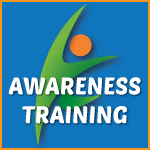What you need to know before switching to an organic diet
What does it mean to eat organic?
Organic Farming vs Commercially Farmed: When we are speaking of organic farming we are referring to the process in which food is grown without the use of toxic chemicals such as pesticides, herbicides, fungicides, and chemical fertilizers. The substances that can cause harm to our health after long term exposure is associated with commercially farmed food. When you start eating more organic foods you will naturally reduce your exposure to these chemicals.
It’s also sustainable. When you shop for organic foods you are supporting the farmers and the food practices that helped put that food on your table. The environment also wins as organic farming has been shown to sustain a higher number and more diverse population of beneficial soil microorganisms. Commercially farmed practices can destroy the rich ecosystem of the soil being used. So remember when you buy organic you are supporting a healthy ecosystem, cruel free animal practices, and you are giving your body the availability to toxin free, nutrient dense food.
Don’t be fooled by false labels.
Not all organic labels are the same: It can be confusing when you start your transition to organic foods as you are sure to find a variety of labels that attempt to grab the eye of health conscious consumers. Practice caution as these foods may not be 100% organic. As a general rule of thumb, always opt for “Certified organic”.
How to tell labels apart
Here’s a list of common food labels and what they mean. You will find that some labels are not regulated by the United States Department of Agriculture (USDA).
- Free-range: Poultry was provided shelter with unlimited access to the outdoors, food and water. The USDA regulates free-range labeling.
- Grass-fed: The animal received most nutrients from grass, with organic feed regulated by the USDA supplementing pasture feeding. Grass-fed labels do not limit use of hormones, antibiotics or pesticide exposure. To be safe, look for organic grass-fed meat, which must meet the USDA requirements for both organic agriculture and grass-fed labels.
- Cage-free: Poultry was allowed to freely roam an enclosed space with unlimited access to food and water.
- Natural: Any animal product labeled natural must have minimal processing and no artificial ingredients. The label does not define if the food was commercially farmed or not.
- Pasture-Raised: This may include a variety of agricultural practices and is not USDA regulated.
How to prioritize which organic foods to buy
You may be well aware that there is often times a substantial price difference between organic vs. non-organic. You may have weighed out the differences on one of your trips to the grocery store. This is an important issue to cover as I have found in my practice that when people are considering switching to organic they can be put off by a higher grocery bill.
I’m here to tell you that it doesn’t have to be an all or nothing approach and that you don’t have to worry about making the jump to a complete organic diet. In fact there are specific foods that I rank as a high priority to focus on buying organic while others are lower priority. This allows you to manage your budget while getting the best bang for you buck. Let’s take a look at which foods rank highest.
- FATS: When switching to organic I have my clients upgrade their fats for the reason that toxins are typically fat-soluable, meaning they stick to fat pretty well. This means buying grass fed butter and organic coconut butter as well your other cooking oils and skipping the conventional products.
- MEATS: After you have switched from conventional fat to organic fats, you want to start to invest in higher quality meats. These labels may read as grass fed, free range, cage free, and pasture raised. Meats are of second priority as animals have the potential of accumulating toxins via their body fat. The diet an animal is raised on directly effects the health of that animal so you want to make sure you are eating meats of high quality.
- Vegetables: If you have changed your diet to the point where you are buying top quality of fat and meats and you want to take it to the next level now you can start looking into buying organic vegetables. Vegetables will have a lower accumulation of toxic residue compared to our previous entrees.
At the end of the day I invite you to consider what your health would look like if the majority of your diet was composed of high quality organic food. It is my wish that you do not become stressed thinking about not eating organic foods now or if you don’t have the financial capability to do so. You will do more for your health and happiness if you practice gratitude for the food you can eat currently while working on improving over time.
If you are struggling with eating healthy consistently and don’t want to find yourself in the Taco Bell drive thru every day, consider signing up for weekly healthy recipes from my newsletter..You’ll get healthy meal ideas every Friday delivered fresh to your mailbox.